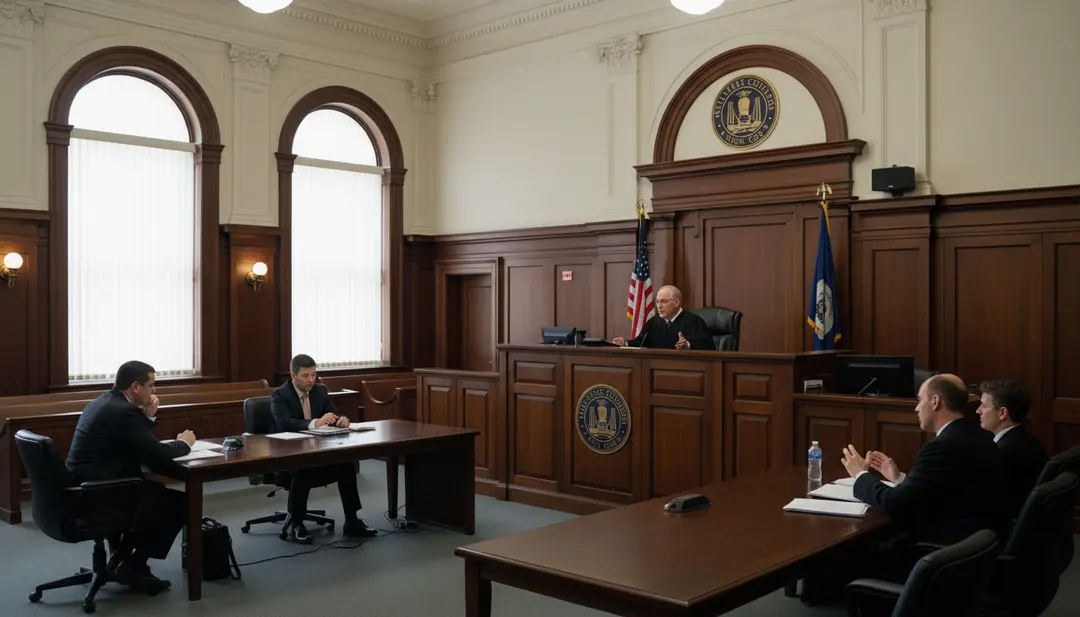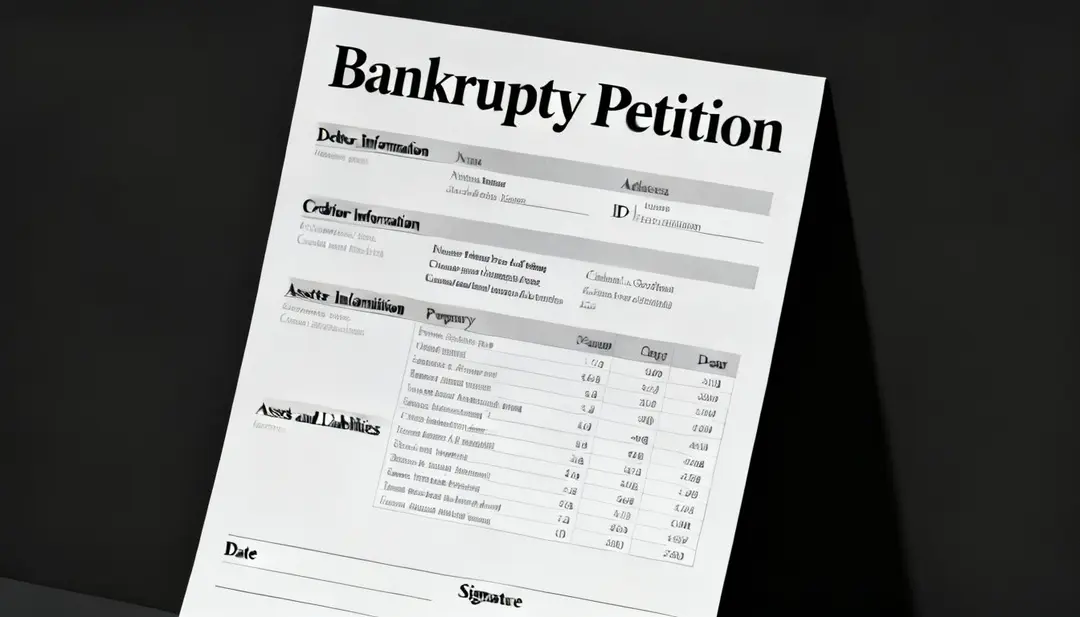Disputing HOA Violation Notices in Arizona: Your Guide to Fines for Landscaping Violations [2025]
HOA violation notices in Arizona can be a source of stress for board members and managers. Disputes often start when homeowners receive fines for landscaping violations that they feel are unfair or unclear. These situations quickly escalate if the notice process isn’t handled right or if the rules aren’t consistently enforced.
Understanding the process for handling and disputing violation notices helps you protect your association from unnecessary conflict and costly litigation. Landscaping violations are especially common and a frequent trigger for fines, so knowing the rules and having clear procedures in place is key. If your community struggles with these issues, working with an experienced Arizona HOA Attorney, Phoenix HOA Lawyer, or Tucson HOA Attorney can make a significant difference.
At Halk, Oetinger, and Brown, you get efficient, results-focused counsel from lawyers who know Arizona HOA law inside and out. We handle everything from enforcement to collections to litigation, always with the needs of your association front and center. For more perspective on common enforcement disputes and what Arizona law says about reasonable fines, review landscaping violation fines in Arizona HOAs.
The Legal Basis for HOA Violation Notices in Arizona
Navigating fines for landscaping violations or any kind of HOA notice in Arizona starts with knowing the law. Homeowner associations must provide proper written notice before a fine sticks, and the process is tightly regulated by state law. HOA board members or managers hold real decision-making power—but with that comes strict legal duties aimed at fairness and transparency. Understanding these requirements not only reduces the risk of expensive disputes but also strengthens community trust.
Arizona Statutes Governing HOA Notices
Arizona law sets clear guidelines for how HOAs must issue violation notices, including fines for landscaping violations. State statutes, particularly those found in the Arizona Planned Communities Act (A.R.S. § 33-1803 for HOAs and A.R.S. § 33-1242 for condos), require:
- Specific Written Notice: The HOA must send homeowners a written notice describing the violation, referencing the section of the CC&Rs or rules broken, and including details like the date and location.
- Allowed Timeline to Respond: Homeowners get a set window (often at least 10 business days) to respond, correct the issue, or request a hearing before a penalty can be enforced.
- Right to Dispute: Residents can contest any notice or fine before the board, and must be told how to schedule a hearing or appeal.
- Detailed Records: HOAs must keep documentation of all notices, responses, and enforcement steps in case of future disputes or legal review.
Fail to follow these procedures? The association risks invalidating the fine and opening the door to potential lawsuits. As enforcement becomes more common, especially with increases in fines for landscaping violations, proper notice and documentation are more important than ever. For practical guidance on collections and compliance workflows, review tips from an Arizona HOA law firm.
HOA Governing Documents and Rule Enforcement
Your community's CC&Rs and HOA rules are the foundation for every enforcement action. These governing documents spell out the standards for property upkeep, landscaping, architectural changes, and homeowner conduct. As an HOA board member, you are legally bound to the following:
- Uniform Application: Apply all rules and penalties equally to every homeowner, without favoritism or exceptions. Uneven enforcement triggers most of the conflict and is a common issue in Arizona HOA dispute cases.
- Documented Policies: Procedures for sending violation notices and assessing fines need to match what's written in the bylaws and rules. That includes how many warnings are given, time frames for correction, and how fines escalate.
- Responsiveness: Always respond promptly to homeowner requests for clarification, disputes, or hearings—this shows you value fair process.
Effective rule enforcement is not about being strict for the sake of it. It's about following clear steps, giving every homeowner a chance to resolve issues, and building community trust. Staying current with your community’s CC&Rs and updating them as laws change keeps your approach legal and consistent. For legal insight into enforcing covenants and working with experts such as a Phoenix HOA Lawyer or Tucson HOA Attorney, see legal profiles like John Halk - AZ HOA Law Partner and Philip Brown legal profile.
Following Arizona law and your governing documents sets a strong foundation for addressing fines for landscaping violations or any other enforcement challenge. This is the key to protecting your association from unnecessary disputes and building a positive, professional reputation in the community.
Common Types of Violations and Fines: Spotlight on Landscaping Issues
Every HOA board member in Arizona quickly learns that not all violations carry the same weight. Some issues spark more disputes and fines than others, and landscaping stands out as one of the most common triggers—often leading to the highest frustration among homeowners. Fines for landscaping violations are a routine part of HOA life, but understanding what actually counts as a violation, how fines are determined, and how your board can handle disputes makes all the difference for smooth association management.
Below, you’ll find a breakdown of the most frequently contested fines, step-by-step processes for handling them, and proven strategies for documenting your actions in case of appeal. While landscaping takes center stage, parking, noise, and maintenance issues also demand your attention and sometimes require a legal assist from an Arizona HOA Attorney, Phoenix HOA Lawyer, or Tucson HOA Attorney.
Understanding Fines for Landscaping Violations
Landscaping rules are central to maintaining your community’s look and home values. When a homeowner neglects basic standards—letting weeds grow, leaving dead plants in yards, storing debris, or failing to maintain required bushes and trees—your board may need to take action.
What counts as a landscaping violation?
- Overgrown weeds
- Dead or dying grass, plants, or trees
- Unapproved landscaping materials or features
- Failure to follow approved design or plant lists
- Poorly maintained yards that impact neighborhood aesthetics
Common fine amounts:
Most associations start with modest fines for first offenses, usually $25 to $100, but amounts can increase for repeated violations or lack of response. Arizona statutes require fines to be “reasonable,” so a penalty that far exceeds the nature of the offense—like $2,000 for not trimming bushes—may not hold up if disputed. Consistency and fairness are key.
The process for assessing fines:
- Notice – Send a detailed written notice that identifies the violation, cites the specific rule, and offers a chance to fix the problem.
- Opportunity to Respond – Give homeowners at least 10 business days to correct the issue or formally dispute the violation.
- Follow Governing Documents – Fine amounts, escalation steps, and timeframes must align with your CC&Rs and rules.
- Documentation and Recordkeeping – Keep copies of every notice, response, photo, and decision. This protects the association during disputes, appeals, or court cases. Strong records make your board’s case much stronger if a fine is challenged.
Arizona boards are expected to strictly follow legal steps before imposing penalties. For more best practices about due process and compliance, review this guide on Arizona HOA fines and CC&R rules.
Being transparent, consistent, and thorough in your recordkeeping helps protect your association from claims of unreasonable enforcement or bias. If a dispute escalates, your documents are your board’s strongest shield.
Other Frequently Disputed Violations: Parking, Noise, and Maintenance
While landscaping violations draw the most fines, they aren’t alone. Arizona HOAs also handle high volumes of disputes over parking, noise, and general property maintenance. Issues range from illegally parked cars to loud parties and neglected repairs. Each situation requires your board to follow a clear, fair process.
Typical violations and disputes include:
- Parking in prohibited areas or blocking driveways
- Unregistered or inoperable vehicles left on property
- Excessive noise at night or during quiet hours
- Failure to maintain the home exterior (peeling paint, broken fences, cluttered yards)
Parking issues, in particular, often lead to heated battles. Whether you’re considering new rules or facing enforcement challenges, consistency is critical for harmony and legal compliance. For an in-depth look at managing these challenges, check out these insights on Navigating HOA Compliance Challenges.
Identifying violation patterns and addressing them directly helps your board keep the peace and avoid legal headaches. If your association struggles to find a fair and legal path forward, an experienced Arizona HOA Attorney, Phoenix HOA Lawyer, or Tucson HOA Attorney can help your board build and maintain a healthy, vibrant community.
Step-by-Step Process: Disputing an HOA Violation Notice in Arizona
Challenging a violation notice from your HOA is a detailed process, but knowing the steps can save your association and residents time, resources, and tension. With many disputes revolving around fines for landscaping violations, careful preparation and a clear understanding of legal rights make all the difference. The approach described below is designed for both HOA board members and managers handling homeowner appeals, putting you in control of the process while maintaining fairness and openness.
Preparing Your Dispute: Collecting Evidence and Written Responses
Start by getting organized. Whether you are a board member reviewing a dispute or a homeowner contesting a notice, documentation is your strongest tool. Make sure every detail is recorded and ready to present.
Key items to gather:
- Copies of the violation notice and related correspondence
- Relevant sections from the CC&Rs, bylaws, and rules
- Date-stamped photographs that show the property before and after the alleged violation
- Communication logs, including emails, letters, or notes from phone conversations
- Any receipts or records that support your side (maintenance work, landscape invoices, etc.)
When drafting your written response, stick to the facts. Address each point in the violation notice, cite the governing documents, and include your supporting evidence. Be clear, concise, and courteous. For board members, double-check that the association followed every legal step and deadline as listed in your CC&Rs and the Arizona statutes.
Timely, complete, and well-documented responses usually result in smoother hearings and quicker resolutions. To ensure your process meets legal requirements and prevents larger problems, it's wise to monitor for patterns or issues with recurring fines for landscaping violations.
The Hearing Process and Homeowner Rights
Arizona law gives homeowners the right to dispute a violation and request a hearing before the HOA board. Both sides need to know what to expect, so preparation makes a difference.
What to expect during the hearing:
- The homeowner must be notified of the hearing date, time, and location well in advance, as stated in the community's governing documents.
- Hearings are typically held during regular or special board meetings; minutes must be taken and kept on file.
- Both the HOA and homeowner can present evidence, witnesses, and make their case.
- Board members must remain objective and follow a standard procedure for evaluating the evidence and arguments.
The board will make a decision based on the information provided. Homeowners must receive written notice of the outcome, including findings and, if applicable, deadlines for compliance. Keep in mind, the HOA must stick to set timelines throughout the process to avoid disputes over fairness or procedure. For complex or high-stakes hearings, review Common HOA Litigation Issues in Arizona for examples of situations where process mistakes can turn disputes into legal challenges.
Accurate recordkeeping and regular review of complaints help prevent repeat issues and build confidence in your enforcement process.
Seeking Legal Support from Arizona HOA Attorneys
Sometimes, even well-documented disputes can spiral out of control—especially if fines for landscaping violations are frequent, the rules are unclear, or relationships have grown contentious. In these cases, bringing in an Arizona HOA Attorney, Phoenix HOA Lawyer, or Tucson HOA Attorney can shift the momentum back toward resolution.
Benefits of seeking legal help:
- Legal counsel ensures the board follows both state rules and your own governing documents.
- Attorneys can draft response letters, offer guidance in complex cases, and represent the HOA or homeowner at hearings.
- Ongoing support helps associations avoid costly mistakes and repeated litigation.
Legal support is especially valuable when:
- The same violations keep occurring, leading to repeated fines and appeals
- Homeowners threaten or file lawsuits against the association
- The rules or governing documents are unclear or conflicting
- The stakes are high, such as large fines or the risk of damaging community trust
At Halk, Oetinger, and Brown, our attorneys use a structured approach for enforcement issues, often resolving disputes without litigation. Our flat-rate general counsel services give you cost certainty while focusing on solutions, not billable hours.
If your board is facing ongoing compliance battles or would like to strengthen its enforcement process, working with a law firm that is committed to efficient, solutions-based service is a smart move. Protect your community and minimize drama by considering professional support before problems grow. For a broader perspective on compliance and alternatives to litigation, see Challenges in HOA Compliance.
Strong legal guidance and a transparent, well-documented dispute process help your HOA handle fines for landscaping violations fairly—and prevent small conflicts from becoming bigger obstacles to community success.
Best Practices for HOA Boards: Reducing and Resolving Disputes
Proactively reducing and resolving disputes within your HOA protects your community and your peace of mind. The right approach limits unnecessary tension, preserves relationships, and keeps fines for landscaping violations and similar issues manageable. Success starts with transparency and good communication—two pillars that guide every professional Arizona HOA Attorney, Phoenix HOA Lawyer, or Tucson HOA Attorney who helps HOA boards thrive.
Transparent Notices and Consistent Policies
Clarity and consistency are two of your strongest defenses against disputes. When violation notices and rules are uniform and easily understood by all homeowners, you set clear expectations and avoid confusion. This reduces the likelihood that a homeowner will see a fine as unfair or arbitrary.
Here’s why it matters:
- Prevents misunderstandings: Vague or inconsistent notices lead to more challenges, slowing down compliance and heightening frustration.
- Builds trust: Uniform procedures reassure residents that everyone is treated equally, without exceptions.
- Supports enforceability: Clear documentation makes your association’s decisions easier to defend if they are appealed or legally challenged.
When drafting notices or rules, follow these best practices:
- State the violation clearly, including references to the specific CC&R section and a description of the issue, such as what counts as a landscaping violation.
- Include relevant deadlines and next steps, using plain language.
- Apply all rules and communications in the same way to every homeowner, every time.
- Use templates to maintain consistency. For practical templates and communication guides, consider these key HOA templates every Arizona community needs.
Establishing consistent policies and transparent communication lays the foundation for fair rule enforcement.
Maintaining Open Communication with Residents
Open, ongoing communication makes the process of addressing fines for landscaping violations feel less adversarial and more collaborative. When residents know what to expect—and have a way to share their concerns—they are much more likely to cooperate.
Practical ways to improve communication include:
- Share violation procedures and compliance policies in clear, accessible formats, such as handbooks or regular newsletters.
- Hold informational sessions or Q&A meetings so homeowners can ask about the rule enforcement process.
- Encourage written feedback by providing contact information and inviting residents to share their experiences or opinions.
- Offer updates on outcomes from board hearings or major changes to policies, strengthening transparency.
- Always keep a respectful tone, both in person and in writing.
Welcoming conversation and feedback helps spot recurring issues early and signals that your board is willing to listen. For further insights into transparency and trust-building, explore this guide to Arizona HOA transparency.
By setting the right example in communication and consistency, you help reduce disputes—while creating a more positive environment for everyone. If your board would benefit from more detailed counsel on putting these practices in place, an experienced Arizona HOA Attorney, Phoenix HOA Lawyer, or Tucson HOA Attorney can guide you at every step.
Conclusion
Adhering to proper procedures, thorough recordkeeping, and seeking the right legal support gives your HOA board the greatest protection when handling fines for landscaping violations. Fairness, transparency, and compliance should always guide your decisions—these values help maintain trust within your community and limit avoidable disputes.
For tough enforcement challenges, working with an Arizona HOA Attorney, Phoenix HOA Lawyer, or Tucson HOA Attorney ensures your board has clear guidance at every phase. At Halk, Oetinger, and Brown, you benefit from flat-rate general counsel services and decades of focused experience. Our attorneys help you resolve disputes efficiently, manage collections confidently, and steer your association clear of litigation whenever possible.
Set your association apart by making fairness your standard. Protect your community, and explore more on Ensuring HOA Compliance in Arizona to keep improving your approach. Thank you for reading—consider sharing your own experiences or challenges with HOA fines and dispute processes. Your proactive steps create stronger, more unified Arizona communities.
Frequently Asked Questions About Disputing HOA Violation Notices in Arizona
Questions about fines for landscaping violations and the process to dispute HOA violation notices are some of the most common topics for Arizona board members and managers. When you understand the steps, protections, and timelines, you reduce friction and encourage a healthier relationship between your association and homeowners. This FAQ addresses what you need to know about challenging violation notices, how boards should respond, and where to turn for extra support.
Can a homeowner challenge a fine for landscaping violations in Arizona HOAs?
Yes, any homeowner has the right to challenge a fine for landscaping violations. These disputes are the most frequent across Arizona HOAs. To contest a notice, the homeowner should:
- Review the violation notice and collect evidence (photos, correspondence, maintenance receipts).
- Consult the association’s CC&Rs and rules for specific requirements tied to landscaping.
- Submit a written response or a formal dispute letter, addressing each point cited in the notice.
Most boards require homeowners to request a hearing or appeal by a set deadline. During this process, both sides can present their version of the facts. To build a strong case, it's critical to support claims with time-stamped photos and clear records. Solid documentation often tips the scale in hearings.
Board members must follow fair procedures for reviewing disputes. This starts with confirming the violation, verifying documentation, and ensuring all proper steps were followed. Many HOAs find using specialized Covenant Enforcement Services makes the process smoother, fairer, and less stressful for everyone.
How quickly must an Arizona HOA respond to a dispute or appeal?
Arizona law sets out response requirements for HOAs once a dispute or appeal is filed. Typically, the association has 10 business days to acknowledge a homeowner’s appeal and schedule a hearing or provide a formal written response. This timeline comes from A.R.S. § 33-1803 (planned communities) and is mirrored in most governing documents.
The board’s obligation is to act promptly—not just for compliance, but to avoid escalation. Ignoring or delaying action may invalidate the fine or expose the association to further challenges. For board members, meeting these deadlines shows respect for members’ rights and demonstrates the association's commitment to fairness.
Is it necessary to hire an Arizona HOA Attorney to dispute a violation notice?
You don’t need to hire a lawyer for every routine violation, but having an Arizona HOA Attorney, Phoenix HOA Lawyer, or Tucson HOA Attorney can be a big help—especially for complex matters or large fines for landscaping violations. A good attorney will:
- Help clarify the association’s obligations or spot mistakes in the process.
- Draft or review dispute letters, offer strategic advice, and represent you in hearings.
- Guide boards through appeals, proper evidence collection, and communication with homeowners to minimize risk.
Legal help becomes cost-effective when cases are complicated, facts are disputed, or litigation looks likely. It can also save your association time, money, and headaches in the long run.
What are the main reasons disputes are upheld or dismissed by the HOA board?
Most disputes hinge on just a few points. The board may uphold or dismiss a violation based on:
- Lack of clear notice: If a homeowner was not informed of the issue, the fine rarely stands.
- Weak or missing documentation: Fines for landscaping violations often fall apart without strong photo evidence or records to back up the claim.
- Inconsistent rule enforcement: If other residents break the same rule and are not fined, boards risk accusations of selective enforcement.
- Procedural missteps: Missing deadlines, not offering a hearing, or straying from the process listed in the CC&Rs can invalidate enforcement.
Following best practices in investigation, documentation, and communication isn’t just about checking boxes—it protects your board and builds community trust. See more on why documentation matters in the Assessment Collection Services section.
Does disputing a violation put me at risk of more fines or retaliation?
Arizona law protects homeowners from retaliation when they contest a fine or violation notice in good faith. HOAs cannot add new penalties or target residents for using their dispute rights. If you follow the process and submit a clear, honest appeal, your association should respond with fairness and transparency.
Protecting both sides is essential. Boards are encouraged to keep clear records of all interactions and stick strictly to policies, as this shields against bogus claims of harassment or unfair treatment. Transparent practices keep everyone safe and set the stage for fewer misunderstandings.
Where can HOA board members get more help with violation and fines policies?
If your board needs extra guidance for handling fines for landscaping violations, there are several reliable paths:
- Review related HOA-Related Articles to get expert perspectives and actionable tips.
- Consult your association’s management company for recommended templates and notice procedures.
- Connect with a Phoenix HOA Lawyer, Arizona HOA Attorney, or Tucson HOA Attorney who specializes in HOA governance and covenant enforcement.
- Use in-depth resources like the Impact of Local Regulations on Arizona HOAs to understand how local and state laws affect violation policies.
At Halk, Oetinger, and Brown, you gain access to specialists who can audit your processes, answer questions, and supply standardized documents—often at a flat rate, making it easier to manage costs and avoid surprises.
The right policy advice and legal support put your HOA in the best position to handle disputes with confidence, preserve community harmony, and limit the impact of fines for landscaping violations.













